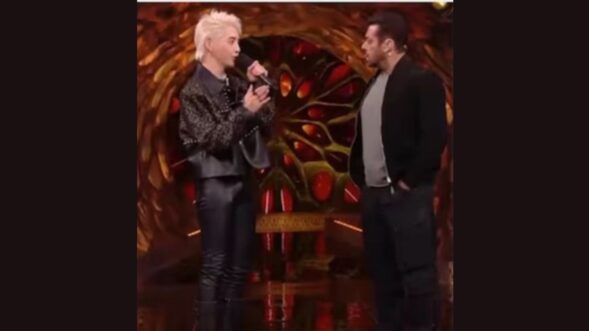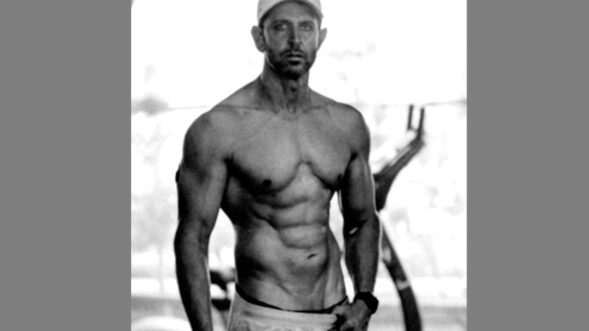
By Eleanor Mikkimchi Sangma | TURA
Many in Ukraine, who had made the country their temporary homes either for work or studies, have had to return to their homeland, since the onset of the invasion by Russia. Darcy Fiona Marak from Tura has been amongst those who have had to make a difficult and depressing journey home. Eleanor Mikkimchi Sangma speaks to this young student about the experience of seeing war shatter dreams and hopes.
Only a month ago, Darcy Fiona Marak was a third-year student at Kyiv Medical University, leading the tiresome life of a medical student. Attending classes throughout the week, she and her friends rarely had spare time to do anything else. Weekends provided a respite from her work; she would spend those few days resting, doing chores or going out with her friends. “We’d go out to have lunch or snacks together in nearby cafés or restaurants”, she says.
Due to the pandemic, however, Darcy had been unable to physically attend classes for a while. She had flown back to Kyiv only on 12 February to attend classes and prepare for her exams. Initially, when news about the conflict between Russia and Ukraine started being reported by the Indian media, none of them believed in what they had assumed were exaggerated stories. “At the time, the reality did not seem as outrageous”, she explains. She had approached her Ukrainian friends and teachers as well as the dean of her university.
All of them had informed her that the conflict between the two countries had been going on for several years and had remained confined to its borders, seldom seeping into the lives of city residents. “War was highly unlikely”, they had told her.
Having talked to them, she believed the situation was stable. She had gone out to explore the place, which confirmed that things were indeed peaceful. “It was only on the 24th of February at around 5.00 a.m. when we heard the first explosions in our city”, she says. After that, they learned that Russia had declared war on Ukraine.
“I didn’t know how to react at first, as it was sudden and unexpected”, she recalls.
Our education system, although lacking in many aspects, has drilled the horrors of war into our brains. A simple Google search would also yield millions of results on the physical, psychological and social consequences of war. As the reality of the situation started to sink in, she says it was terrifying especially being aware of the chaos a war could bring.
Following the explosions, civilians in Ukraine would take shelter in bunkers, metro stations and any safe place they could find. Such was the harsh reality that Darcy and her friends had also found themselves in. They had to stay in bunkers, where they spent several cold nights of uncertainty. Darcy, like any other person in her situation, was initially afraid and clueless. Gradually, upon seeing the courage of Ukrainian civilians who had sprung to action, she began to feel hopeful, as they geared up to help themselves out of their predicament.
Attacks mostly came during nights and early mornings. Taking advantage of the relatively calmer situation during the day, they would carefully move back to their dorms or apartments in order to feed themselves, despite heavy risks. “We ate every meal as if it was our last because the situation was so uncertain”, she says. Cooking all the time was not possible; they had to survive on packaged food, sometimes being forced to consume stale food. They had tried to book buses and other means of transportation but had initially been unable to do so due to the availability of vehicles.
The quality of humanity is that it survives even in the most inhumane conditions. On 28 February, they finally got hold of a bus that would take them to the Romanian border. Their saviour came in the form of a Ukrainian civilian who had arranged for their evacuation.
The journey from Kyiv to the border was one of relief, accompanied by a sense of survivor’s guilt. “I felt relieved that I would be going to a safer zone, but that was soon followed by a feeling of guilt for leaving behind the Ukrainian citizens in a war-torn city when they needed us the most”, she tells me.
Passage to the neighbouring country was not easy. They encountered grenades along the way. As the bus took them away from the city, they witnessed the shelling of their city and explosions in the sky. “It was a terrifying sight”, she describes.
They reached their destination the next morning and were taken to a shelter camp. She recalls the day as being extremely cold, made slightly warmer with the clothes and food provided to them by Romanian civilians and NGOs who were prepared to welcome them.
The shelter camp housed more than 3,000 students. They were provided with heaters, warm blankets and three meals each day. After almost four days of staying at the camp, flights from India finally arrived to bring them back. She says she feels safe and grateful to have reached home. “We’re thankful to everyone who remembered us in their prayers. Without the grace and blessings of God, the evacuation would not have been possible”, she says.
Thousands of miles away from the war, pain and guilt still cling on to Darcy. She says seeing innocent people who are dying for no fault of theirs saddens her.
“I feel relieved that I’m home, but the pain I feel for the Ukrainians and those still stuck in the country is much more than the joy of coming home”.
She also feels guilty for not being able to do much for them beyond remembering them in her prayers and donating in any way possible. “I hope for the war to come to an end, as neither the Ukrainians nor the Russians deserve to suffer”, she adds.
Nikita Gill in her poem They Took Your Home From You Now They Call You Refugee wrote, “Home is now a legend, a story of where you grew up happy and safe before they set your entire world aflame”. It is an echo of how leaving home and becoming a refugee is never a choice, but the consequence of a fate decided for people by the dominant minority’s obsession with power. Stripped of their homes and identity, humanitarian consequences of the ongoing crisis on civilian populations have been devastating. Many have returned home; whilst for many others, the idea of home itself has become muddled. They stand now, lost in between worlds.






